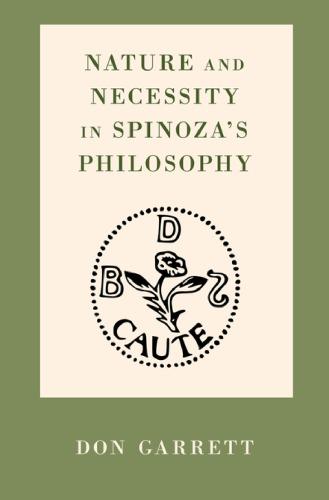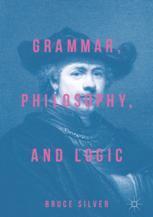ForMihaela
PartI.Frege
1.TheModalitiesofJudgment17
1.1FregeagainstTraditionalLogic18
1.1.1ABriefSketchofTraditionalLogic18
1.1.2KantonJudgmentandLogic20
1.1.3ProblemsofTraditionalLogic27
1.1.4TheFregeanSolution29
2.Amodalism57
2.1TwoInterpretationsofFregeonModality58
2.2TruthisAbsolute61
2.2.1AgainstHilbertandKorselt62
2.2.2ThoughtsarenotTemporalorSpatial66
2.3Amodalism68
2.4EarlyTruthAbsolutismandAmodalism71
2.5InadequateGroundsforAmodalism73
3.FromJudgmenttoAmodalism77
3.1JudgmentandTruthaftertheSense/ReferenceDistinction79
3.2RedundancyagainstthePredicationAnalysis83
3.2.1MoreVarietiesofRedundancy87
3.2.2DoubtsaboutRedundancy88 3.2.3Summary89
3.3TheIndefinabilityofTruth89
3.4WhatisaSteptoaTruth-Value?96
3.5TheRecognitionalConceptionofJudgment99
3.5.1TheSupervenienceofTruth-PredicatingJudgments100
3.5.2JudgmentasRecognition102
3.5.3RecognitionasSteptotheLevelofReferents102
3.5.4Thoughts(Gedanken)asRepresentations (Vorstellungen)103
3.5.5TheConstitutionoftheSteptoaTruth-Value108
3.5.6TheRecognitionalConceptionandRedundancy111
3.5.7 NugatioabOmniaNævoVindicatus 113
3.5.8TwoWorries115
3.5.9 TheRecognitionalConceptionandObject-Relation Interpretations119
3.5.10RecognitionandAcknowledgment120
3.6Judgment,Judging,andFactivity124
3.6.1AgainsttheFactivityofFregeanJudgment124
3.6.2FortheFactivityofFregeanJudgment126
3.6.3Judgingvs.Judgment;HoldingTruevs. AcknowledgmentofTruth127
3.6.4TheIndependenceofTruthfrom AcknowledgmentofTruth130
3.6.5ALettertoJourdain131
3.7ApparentThoughts133
3.8TheBasicArgumentforTruthAbsolutism136
3.9TheBasicArgumentbeforetheSense/Reference Distinction?140
3.10AConcludingRemark143
4.TheTruthinModalism145
4.1PartsofThoughts146
4.1.1Between Begriffsschrift andtheSense/Reference Distinction147
4.1.2AftertheSense/ReferenceDistinction153
4.1.3MultipleAnalyses154
4.2FregeanAccountsofTemporalism156
4.2.1SensesexpressedasaFunctionofTime157
4.2.2AnotherArgumentagainstTemporalism158
4.2.3SensespresentingTimesasPartsofThoughts167
4.2.4TemporalModalDiscourse169
4.3FregeanAccountsofCircumstantialism170
4.3.1AParalleltoTemporalism170
4.3.2CircumstancesasThoughts,I173
4.3.3MetaphysicalModalDiscourse,I175
4.3.4CircumstancesasThoughts,II176
4.3.5MetaphysicalModalDiscourse,II182
4.3.6ConcludingRemark184
4.4Analyticity,Apriority,andModality185
5.TheNatureofLogic192
5.1Frege’sMainCharacterizationsofLogic193
5.1.1UniversalityorGenerality(Allgemeinheit)193
5.1.2LogicalLawsareTruths195
5.1.3TheJustificationofLogicalLaws197
5.1.4PrimitiveandDependentTruths200
5.1.5LogicalandotherSourcesofKnowledge201
5.1.6PrimitiveTruths,AxiomsandJustificational Independence203
5.1.7Self-EvidenceandSelf-Sufficiency205
5.2TheConstitutionofJustificationalSelf-Sufficiency210
5.2.1SemanticsandSoundnessArguments213
5.2.2SoundnessArgumentsasLogicalityArguments219
5.2.3IsFregegivingLogicalityArguments?221
5.2.4AProblemforLogicalityArguments226
5.2.5AnAlternativetotheLogicalityInterpretation?229
PartII.RussellandMoore
6.FromIdealismtoLogicism233
6.1Bradley’sTheoryofModality234
6.1.1HypotheticalJudgments234
6.1.2JudgmentsofNecessityandPossibility238
6.2Geometry,Logic,andNecessity241
6.2.1KantonGeometryandtheProblemof Non-EuclideanGeometries241
6.2.2DifferenceswithKant:Syntheticity,Apriority,and Necessity244
6.2.3TheTranscendentalJustificationofProjective Geometry246
6.3TheUltimateIndemonstrabilityofNecessity249
6.4NecessityandLogicism254
6.4.1MainFeaturesofAxioms254
6.4.2TheLogicalCalculusandAnalysisofManifolds257
6.4.3TheMainProblemofRussell’sAccountofthe LogicalCalculus266
6.5ConcludingSummary267
7.TheRejectionofModality270
7.1ThePathtotheRejectionofModality271
7.2Bradley’sTheoryofJudgment276
7.3Moore’sCritiqueofBradley’sTheoryofJudgment279
7.4Moore’sMetaphysicsofJudgment,Propositions,andTruth287
7.5Russell’sMetaphysicsofPropositions295
7.5.1Terms,Being,andExistence295
7.5.2Things,Concepts,andModesofOccurrence296
7.5.3TheUnityoftheProposition297
7.5.4DenotingConcepts299
7.6Moore’sCritiqueofKant’sViewofNecessity300
7.7Russell’sAmodalism305
8.CompletingtheRejectionofIdealism309
8.1RussellagainstBradleyin Principles 309
8.2BradleyonMetaphysicsandtheCompositionofWholes314
8.2.1TheArgumentagainstPsychologicalAtomism316
8.2.2TheRegressArgumentagainsttheRelations318
8.3Bradley’sRegresses,SufficientReason,andModality322
8.4PartsandWholesin Principles 329
8.4.1Russell’sDoctrine329
8.4.2Aggregates331
8.4.3Unities333
9.LogicandImplication336
9.1InferenceandFormalImplication337
9.2TheGeneralityofLogic344
9.3ProblemsofFormalImplication347
9.3.1TheCompositionofPropositionsofFormal Implication348
9.3.2TheInferentialJustificationofFormalImplications350
9.4TheMaterialityandIndefinabilityofImplication352
9.5WhenceMaterialImplication?361
9.6Implicationin Principia 365
10.TheContinuingBanishmentofModality371
10.1MooreonNecessityasLogicalPriority371
10.2RussellonNecessityasLogicalPriority374
10.3Our“Feelings”ofNecessity376
10.3.1TheFeelingfromApriority378
10.3.2TheFeelingfromDemonstrability381
10.3.3TheFeelingfromAnalyticity382
10.3.4TheFeelingfromGenerality385
10.3.5TheSignificanceoftheFeelings388
10.3.6TheSignificanceof“NecessityandPossibility”389
10.4After“NecessityandPossibility”391
10.4.1“SomeExplanationsinReplytoMr.Bradley”(1910)391
10.4.2 TheProblemsofPhilosophy (1912)391
10.4.3“OntheNotionofCause”(1912–13)393
10.4.4 TheTheoryofKnowledge (1913)393
10.4.5 OurKnowledgeoftheExternalWorld (1914)394
10.4.6“ThePhilosophyofLogicalAtomism”(1918–19)395
10.4.7 IntroductiontoMathematicalPhilosophy (1919)400
Preface
Ihavefoundthatphilosophyoftencallsonmetosolveproblems,but,almost equallyoften,alsotofigureoutwhywhatI’mtryingtosolve are problemsand whywhatI’mdoing are attemptsatsolutions.Nodoubtothersfindthemselves facingdifferentdemands,but,formethesetwoaspectsofphilosophizinghave alwaysbeeninescapable,indeed,notaltogetherseparable.
Thisbook,ultimately,comesfromthesecondofthesedemands.
Manyoftheproblemsandstrategiesofsolutionofrecentphilosophyinthe analytictraditionliveinabackgroundconstitutedoftheconceptsofnecessity, possibility,andcontingency,ofteninthestrikingguiseofLeibniz’spossibleworlds. Myinterestistofigureouthowmodalnotionsformssuchacrucialframework forposingandansweringphilosophicalquestions.Iapproachthisquestionby examiningthephilosophicalhistoryofmodalityinanalyticphilosophy.
Thisbookisthefirstresultofthisexamination.
Philosophicalhistoryis,ofcourse,philosophyfirstandhistorysecond.The secondnessofhistoryinphilosophicalhistorydoesnot,however,meanthatit’s ofsecondaryimportance,especiallyformypurposes.
Itisnosecretthatanachronismisadangerwhenonetriestounderstandtexts fromotherphilosophicaltraditions.Itisequallyadangerinreadingtextsthat onethinksofasbelongingtoanearlierperiodofaphilosophicaltraditionthat onewouldliketocallone’sown.Thisdangerneednotbefatal.Anachronism couldbephilosophicallyfruitful;manywouldpointtoP.F.Strawson’s The BoundsofSense asasuccessfulphilosophicalhistoryinspiteofthejusticeitfails todotothe CritiqueofPureReason.
However,anachronisminreadingGottlobFrege,BertrandRussell,G.E. Moore,C.I.Lewis,orLudwigWittgensteinsometimesleadstolessinspiring results:projectingontothemthephilosophicalconcernswehaveorturning themintotheheroesandvillainsofatalewhosehappyoutcomeisthewaywe dophilosophynow,ifnotthephilosophicalpositionsweholdnow.Thereis, ofcourse,somethingtobesaidformakingthewritingsofthesephilosophers simplerforus,now,tounderstand.Onemayalsotakesuchjust-sostoriesof howcontemporaryphilosophizingcametobeasargumentsforcontemporary methodsandpositions,sothattheinterestofthesestorieslies,notintheaccuracy oftheirhistoricalrepresentations,butinthecogencyoftheargumentsthatthey embody.
It’shardertoseehowonecouldreallylearnsomethingfromourphilosophical predecessorsbysuchprocedures.
Perhaps,asithasbeenurged,wecanneverescapeourselveswhenweattempt tounderstandearlierphilosophy.Butthatdoesn’tprecludemakingtheattemptto becomeconsciousofhowourassumptionsmaystandinthewayofphilosophical understanding.Itisthroughsuchanattemptthatwecancometolearnsomething, fromourfore-bearers,andaboutourselves.Thephilosophicalinterestand fruitfulnessthatmightresultarewhatIhopefor,forthisbook.
Inoneway,thebeginningsofthisprojectreallygobacktoaPh.D.dissertation thatIdidnotwrite,withasupervisorIdidnothave.
BurtonDrebenwastobethatsupervisor.IhadbeeninterestedinFregeever sinceIread FoundationsofArithmetic inatutorialwithJonathanBarnes.However, theFregeIencounteredinthattutorialseemedquitedifferentfromtheoneBurt urgedonmeinourlongbutsomehowneverconclusiveconversations.Burt’s Frege,aselaboratedinWarrenGoldfarb’sclassesonearlyanalyticphilosophy andthewritingsofTomRickettsandJoanWeiner,wastheoneinhabiting EmersonHall.Warren,myactual Doktorvater,togetherwithTom,suggested thatIthinkthroughthedifferencesbetweenthepictureofFregeIfoundaround meandthemassivelandmarkinterpretationofFregepropoundedbySirMichael Dummett.Ultimately,though,thatplanforadissertationcametonaught.
OnereasonwasthatIhadcometokeepcompanywithRikiHeckandJason Stanley.Ifoundthem,andlater,IanProopsandJamieTappenden,expressing manyofthereservationsIhadaboutBurt’sFrege.However,theeffectof thinkingmoreaboutthesereservationswasthatitbecameharderandharder formetopinpointwhatexactlyarethedisagreementsbetweenthetwostyles ofunderstandingFrege.Bothleftmedissatisfiedinonewayortheother,butI didn’thavemuchtosaybeyondthesedis-satisfactions.
AnotherreasonwasthatthetimeIhadspentwithDummett’swritingson FregeledmetothinkaboutDummett’santi-realismandcritiqueofclassical logic.Thisbroughttheproblem-solvingsideofmyphilosophicalsensibilities tothefore,andIendedupdevisingwaysofdefendingSirMichael’santi-realism and,atthesametime,ofturningasidethecritiqueofclassicallogicheusedit for.
IdidnotcomebacktoFregeforoveradecade,quitesometimeafterthe projectofwhichthisbookisthefirstissuetrulybegan.Thereweretwoproximate causes.OnewasPeterMomtchiloff’saskingmeifIwouldbeinterestedinwriting somethingontheroleofmodalityinanalyticphilosophy.Iamsurehedidnot expectthatnothingwouldcomeofthatrequestforovertenyears.Ithankhim forhispatienceoverallthistimeandhopetomakeituptohimbygivinghim VolumeIIinshortorder.TheothercausewasMikeBeaney’srequestfora contributiontohismagisterial HandbookoftheHistoryofAnalyticPhilosophy.In thecourseandthentheaftermathofwritingthatessay,Icamegraduallyto seethat,todojusticetothetopic,muchmorewasrequiredthanthebookI hadoutlinedtoPeter.SomeofwhatwasrequiredisthediscussionofFregein
thisbook,andthismaterial,Iventuretosay,mighthaveformedpartofthat dissertationIdidnotwrite.
AsIworkedonthisbook,Iwasfortunatetohavehadthehelp,encouragement, andphilosophicalcompanionshipofmanyfriends,colleagues,andteachers. Ahandfulofthesemadeadecisivedifferenceinthewritingofthisbook. IhavebeenphilosophizingwithJulietFloydeversincewesharedanoffice. Wehavelongtalkedaboutthegreatthinkersattheinceptionoftheanalytic tradition—Frege,Russell,Wittgenstein,HarrySheffer,andC.I.Lewis,and aboutthegenerationafterthem—CarnapandQuine.Ourcollaborationon FuturePasts shapedmyconceptionofthehistoryofanalyticphilosophyand thefruitfulphilosophicalprosecutionofit.But,morerecently,shehasbeena tremendousinfluenceonmythinkingabouttheroleofmodalityinearlyanalytic philosophy;aboveallelse,shewaswillingtoconfirmmysenseofhowtoread FregeandRussellonmodality,andtogivemethecouragetofollowthatsense tointerpretationsthatseemedoutlandish.Shealsogavemeoverandover, opportunitiestotalkaboutmyviewsattheBostonEarlyAnalyticPhilosophy Workshopwhichsheorganized.
RobertMayandIhavebeentalkingaboutFregeforalmostaslongasIhave beenworkingonthisbook.Hesuggestedtome,shortlyafterwemet,thatfor myprojectIshouldconsiderFrege’scriticismsofHilbert.Thiswas daserlösende Wort,pointingthewaytomyrealizingjusthowdeepinFrege’sphilosophylie thewellspringsofhisoppositiontomodality.SincethenIhaveregularlystolen Robert’sideasaboutFrege;inparticular,Igotfromhimtheideaofjudgment asfactive,thatis,asimplyingtruth,whichplaysacentralroleinPartIofthis book.IhopethatitwillbeworthRobert’swhilerepayingthefavor.
ImetGaryEbbswhenhewasjuniorfacultyatHarvard,andwehavebeen discussingourcommonpreoccupations—anti-realism,earlyanalyticphilosophy, andthedialoguebetweenQuineandCarnap—eversince.Ilearnsomething fromeveryoneofourconversations;but,inthecaseofthisbook,therewere severalpivotaldiscussions.OnewasonRussell’smaterialimplication,wherehis questionsabouthowtheideamadeanysensepromptedmetoamuchbetter understandingofRussell’sconceptionoflogic.Anotherdiscussionsharpened myviewofRussell’srejectionofBritishabsoluteidealism.Twootherswereon Frege:GarygotmetoarticulatemuchmorefullywhyFregeresistedsenses thatpresentedreferentsrelativetocontextualfactors,andtoclarifyformyself whatoftheconceptionofjudgmentIdiscerninFregeistrulyessential.
IanProopshasbeenagreatfriendsincegraduateschool.Ihavelearneda tremendousamountfromhiswritingsonRussellandonthe Tractatus,especially whereIdisagree.Morerecently,hehasgivenmeexpertadviceonKant.Ian isneverdoctrinaireinconversation,andhisthoroughcommandofthetexts inevitablykeepsmeonthestraightandnarrow.Ifwe’venothadthechanceto talkaboutRussellovertheyears,thisbookwouldcertainlybethepoorer.
ArataHamawakiisanotherfriendandlongstandingphilosophicalinterlocutor fromgraduateschool.Wehavespentcountlesshoursmeanderingthroughall sortsofhighwaysandbywaysofphilosophy;thatweneverseemtoarrive anywhereispart,indeedthemainpart,oftheillumination,nottomention thefun,ofArata’sphilosophicalpresence.IwasextremelyhappythatIcould havehimasacolleagueforawholeyear,toindulgeatlengthinthisaimless philosophizing.Mostrecently,Arata,togetherwithKerenGorodeisky,gotme overthefinalimpedimenttofinishingthisbook,byprovidingmewithaway outofastickypointinmyinterpretationofFrege’sresponsetoKant’stableof judgments.
Iwishtothankthosewhogenerouslygaveoftheirvaluabletimetoreadand commentonearlierversionsofpartsofthisbook.MaxWeisssufferedthrough quiteafewvariationsofmyideasaboutFrege’sconceptionoflogic,andabout modalityinanalyticphilosophy.MarkTextor’scriticalrepliestomyaccount ofFrege’sconceptionsofjudgment,thought,andtruthenabledmetosharpen mydiscussionimmeasurably,evenifIcannotfullyallayallhisworries.Jessica LeechpatientlyexplainedtomeherviewofKant’smodalitiesofjudgment,and herinsightfulquestionsaboutmyviewofFrege’sresponsetoKantledmeto correctacriticalmistake.CherylMisaknotonlyhelpedwithmydiscussionof RussellandLewis,butshealsosharedwithmethemanuscriptofherrecent wonderfulbook, CambridgePragmatism.
IwouldliketothanktwoanonymousreadersforOxfordUniversityPress fortheirresponsestothemanuscriptofthisbook.Oneofthemcertainlywent waybeyondthecallofdutyinfurnishingmewithextensivehelpfulcomments. Thesecommentsdemandedsomeconcentratedreworkingandexpansionof myargumentsresultinginsignificantimprovements.
I’mgratefulforallthequestionsandcriticismsIreceivedatpresentations ofmyviews.Inparticular,IthankRobertaBallarin,PaddyBlanchette,Jim Conant,CoraDiamond,DavidHunter,MikeKremer,SandraLapointe,Tom Stoneham,andPeterSullivan.
Manyothershave,inonewayoranother,wittinglyorotherwise,helpedto makethisbookpossible.Chiefamongthesearemyother Doktorvater,Charles Parsons,andmyotherformeroffice-mate,NancyBauer.Inaddition,Ithank StewartCandlish,EmilyCarson,PhilipEbert,FanZhao,EliFriedlander,Michael Glanzberg,MichaelHallett,JeremyHeis,PeterHylton,KellyJolley,GregLandini, BernieLinsky,TomLockhart,DavidMacarthur,EricMarcus,JimO’Shea,Mark Richard,MarcusRossberg,andIanRumfitt.
Ihaveundoubtedlymissedothers;myapologiesandmythanks.
ItwouldberemissofmenottomentionJean-PhilippeNarboux,withwhom Ihavenotdiscussedthedetailsofthepresentbook,butonlyofthenextvolume. AlthoughIhaveknownhimsince2003,itwasn’tuntilwehadoccasiontotalkat lengthin2011thatIdiscoveredhowmuchhesharesmyphilosophicalsensibilities.
I’malsogratefulforhispersistenceinfindingmyconceptionofearlyanalytic philosophyintelligibleanduseful.
Iwishtorecalltwoexemplaryphilosopherswhoarenolongerwithus.
SirMichaelDummettwasextremelykindintakingthetimetodiscusswith memyideasaboutwhathisanti-realismreallyis.Idoubthewaseverfully convinced,butperhapsthatisasmuchareflectionofhisphilosophicalintegrity asitisofmyphilosophicalshortcomings.Nodoubtithasalwaysbeeneasierto placealabelonsomepositiononewishes,forsomereason,toreject,thanitisto dotheworkofunderstandingit.ThelessonthatIeventuallycametolearnfrom mydiscussionswithSirMichaelisthatthishasbeenthefateofhisever-evolving conceptionsofanti-realism.Anti-realismhasbeenstuffedintoapigeonhole entitled“verificationism,”sothatthesubtletyofthinkingandthecourageto facephilosophicaldifficultiesthatonewouldencounterinSirMichael’swritings canbethatmuchmoreeasilyavoided.
ItwasaprivilegetohavegottentoknowRuthMarcusandtohavespenttime withherthinkingaboutherworkandmineoverthecourseofsomethreeyears. Shewas,asanyonewhoknewherorknowsherwritingswouldexpect,unstinting inhercriticismofwhatshefoundwanting.Butshewasequallyunstintingin heropennesstothepossibilityofperspectivesotherthanherown,solongas theyare,assheputsit,seriousaboutphilosophy.
Ihavealsobenefitedfromthesupportofmanyinstitutions.
FirstamongthesetowhichIwishtoexpressmygratitudeistheSocietyforthe StudyoftheHistoryofAnalyticalPhilosophy.SandraLapointe,itsfounderand president,hascreatedatrulyvibrantintellectualcommunity.Theregularannual conferencesandsessionsattheAmericanPhilosophicalAssociationmeetings havemadeitpossibleforallthoseinterestedinthephilosophicalhistoryofthe analytictraditiontopresenttheirideasandreceivehelpfulfeedback.Iwould likealsotothankthehostinstitutionsoftheannualconferencesIattended,and thephilosopherstherewhoprovidedsupport:JoanWeiner,MarkKaplan,and KirkLudwig,inadditiontoGary,atIndianaUniversity,MathieuMarionat UniversitédeQuebecàMontréal,andRichardZachattheUniversityofCalgary.
TheSchoolofSociologyandPhilosophyatBeijingNormalUniversity,under theleadershipofProfessorJiangYi,hasorganizedseveralconferencesand workshopsthathavebroughtanalyticphilosophyanditshistorymuchmoreto theattentionofChinesescholars.TwoespeciallyfruitfulonesthatIattended weretheBeijingInternationalConferenceonWittgensteinandContemporary Philosophy,andtheworkshoponthetranslationofMikeBeaney’s Handbook intoChinese.IwouldalsoliketothankProfessorJiangforinvitingmetogive acourseoflecturesonWittgenstein’s Tractatus in2016.
Ithanktheorganizersoftwoconferencesforaffordingmetheoccasionto presentmyviewsofonRussell’sconceptionoflogicandC.I.Lewis’scriticism ofit.TheseareJean-Philippe,SteevesDemazeux,QuentinKammer,Timur
Uçan,andHenriWagnerfortheColloquium“Larelativisationdel’apriori,” atUniversitéBordeauxMontaigne,andEricLoomis,TedPoston,andRichard FumertonfortheOrangeBeachEpistemologyWorkshop.Inaddition,Ithank theEuropeanSocietyforAnalyticPhilosophyfororganizingits2017Congress ofAnalyticPhilosophy,atwhichIparticipatedinanespeciallystimulatingpanel withRobertMayandMarkTextor.
I’mgratefultotheNationalEndowmentfortheHumanitiesforawardingmea FellowshipGrant,#FB-58111-15,thatmadepossibleayearofconcentratedwork onthisbook.
Ithankmycolleagues,pastandpresent,atWesleyanUniversityforthe fineintellectualsettingthey’vecreated.Ihavehadinterestingphilosophical discussionswithLoriGruen,SteveAngle,JoeRouse,SteveHorst,andKent Bendall.I’mespeciallygratefultoLoriforhersteadfastencouragementofmy work.WesleyanUniversityitselfhasalsoplayedacontinuingroleinsupporting myresearch.Inparticular,Iwishtosingleouttwoacademicdeans,Joyce JacobsenandAndyCurran,fortheirtimelyhelp.
Inpreparingthisbookforpublication,Iusedopen-sourcesoftwarewrittenby volunteerswhogenerouslycommittedtheirtimeandexpertisewithoutremuneration.I’m,inthefirstinstance,gratefultoRikiHeck,forwritingtheoriginal OUPRoyalLATEXdocumentclass,andforintroducingmetotheprogramLYX, ofwhosedevelopmentteamheisamember,andusingwhichIwroteandtypeset thisbook.IalsothankBennettHelmformakinghelpfulchangestotheOUP Royalclassthatmademyowncustomizationsthatmucheasiertocarryout. Inaddition,IthankIvanValbusa,theauthorofthebiblatex-philosophyLATEX package,andAlexBall,theauthorofthebiblatex-oxrefpackage,forhelpingme withcustomizingtheircode.Finally,I’mgratefultomembersofthetex.stackexchange.orgcommunitywhopatientlyansweredmyseeminglyendlessseriesof questions.
I’msadthatneithermyparentsnormyparents-in-lawlivedtoholdacopyof thisbookintheirhands.Itissmallconsolation,butconsolationnevertheless,to feelthattheyhadbeenhappytoknowhowmuchIappreciatedtheirunflagging supportthroughouttheyears.
Finally,andmostimportantly,Icouldnothavefinishedthisbookwithout mywife,MihaelaFistioc.Shehasbeenvastlypatientwithmysingularlackof progressovertheyears,andsomehowsawherwaytocontinueencouragingme tokeepgoing.Althoughsheclaimstoknowlittleaboutthepartsofphilosophy towhichmuchofthisbookbelongs,theacuityofherquestionspromptedmeto rethinkandrewritecentralargumentsthroughoutthebook.OnKant,about whichsheknowsmuchmorethanIeverwill,herquestionsandsuggestionsput meinpossessionofthekeytomyaccountofFrege’sreactiontothetableof judgment.Hersterneditorialadvicehassignificantlyimprovedthereadability ofthiswork,although,itistobefeared,notnearlyenoughtosatisfyherhigh
preface xix standards.But,importantthoughthesemaybe,theyare,intheend,secondary. Thewarmthofherlove,andthehumorandthefunwithwhichshehasinvested ourlife,arewhatmakeitatallworthwhile.
Abbreviations
Thefollowingabbreviationsareforfrequentlycitedprimarysources.Fulldetails oftheseworksareintheBibliography.
Inthefollowinglist,IprovideEnglishtitlesforFrege’sworks,withtheexceptionofGermancollectionsofhiswritingsandcorrespondence.
WritingsofFrege
BLC “Boole’sLogicalCalculusandtheConcept-Script,”1880
BLI BasicLawsofArithmetic, Vol.I,1893
BLII BasicLawsofArithmetic, Vol.II,1903
BS Begriffsschrift,aFormulaLanguageofPureThoughtmodelledonthatof Arithmetic,1879
CP CollectedPapersonMathematics,Logic,andPhilosophy,1984
CSR “CommentsonSenseandReference,”1892–5
CT “CompoundThoughts,”1923–6
FA TheFoundationsofArithmetic:ALogico-MathematicalEnquiryintothe ConceptofNumber,1884
FGI “OntheFoundationsofGeometry:FirstSeries,”1903
FGII “OntheFoundationsofGeometry:SecondSeries,”1906
IL “IntroductiontoLogic,”1906
L1 “Logic,”1879–91
L2 “Logic,”1897
LM “LogicinMathematics,”1914
N “Negation,”1918–19
NS NachgelasseneSchriften,1969
PCN “OnMr.Peano’sConceptualNotationandMyOwn,”1897
PMC PhilosophicalandMathematicalCorrespondence,1980
PW PosthumousWritings,1979
SK “SourcesofKnowledgeofMathematicsandtheMathematicalNatural Sciences,”1924–5
SR “OnSenseandReference,”1892
T “Thought,”1918–19
WB WissenschaftlicherBriefwechsel,1969
WritingsofMoore
Nec “Necessity,”1900
NJ “TheNatureofJudgment,”1899
PE PrincipiaEthica,1903
RevFG “CriticalNoticeofRussell, AnEssayontheFoundationsofGeometry,” 1899
TF “TruthandFalsity,”1901
WritingsofRussell
AEE “LesaxiomespropresaEuclide:Sont-ilsempiriques?”1898
AMR “AnAnalysisofMathematicalReasoning,”1898
CR “TheClassificationofRelations,”1899
FG AnEssayontheFoundationsofGeometry,1897
FIAM “TheFundamentalIdeasandAxiomsofMathematics,”1899
IMP IntroductiontoMathematicalPhilosophy,1919
IO “L’idéed’ordreetlapositionabsoluedansl’espaceetletemps,”1901
IPST “IsPositioninTimeandSpaceAbsoluteorRelative?”1901
MTCA1 “Meinong’sTheoryofComplexesandAssumptions(I),”1904
MTCA3 “Meinong’sTheoryofComplexesandAssumptions(III),”1904
NP “NecessityandPossibility,”1905
NT1 “TheNatureofTruth,”1905
NT2 “TheNatureofTruth,”1906
NT3 “OntheNatureofTruth,”1906
NTF “OntheNatureofTruthandFalsehood,”1910
OKEW OurKnowledgeoftheExternalWorld,asaFieldforScientificMethodin Philosophy,1914
PLA3 “ThePhilosophyofLogicalAtomism:LecturesV&VI,”1919
PLA4 “ThePhilosophyofLogicalAtomism:LecturesVII&VIII,”1919
PM PrincipiaMathematica,1910
PoL ACriticalExpositionofthePhilosophyofLeibniz,withanAppendixof LeadingPassages,1900
PoM ThePrinciplesofMathematics,1903
PoMD “ThePrinciplesofMathematics,Draftof1899–1900,”1899–1900
PoP TheProblemsofPhilosophy,1912
RB “SomeExplanationsinReplytoMr.Bradley,”1910
TI “TheTheoryofImplication,”1906
TK “TheTheoryofKnowledge,”1913
OtherPrimarySources
PLI Bradley,F.H., ThePrinciplesofLogic,1883
PLII Bradley,F.H., ThePrinciplesofLogic,withCommentaryandTerminal Essays,1922
SAT Bradley,F.H.,“OnSomeAspectsofTruth,”1911
AR Bradley,F.H., AppearanceandReality:aMetaphysicalEssay,1893
ETR Bradley,F.H., EssaysonTruthandReality,1914
JL Kant,I.,“TheJäscheLogic,”2004
CPR Kant,I., CritiqueofPureReason,1998
KrV Kant,I., KritikderreinenVernunft,1956
SSL Lewis,C.I., ASurveyofSymbolicLogic,1918
SL Lewis,C.I.andLangford,C.H., SymbolicLogic,1932
NL Wittgenstein,L.,“NotesonLogic,”1913
NB Wittgenstein,L., Notebooks,1914–1916,1979
WC Wittgenstein,L., WittgensteininCambridge:LettersandDocuments 1911–1951,2008
ANoteonCitationandTranslations
IncitingtextsofFregeandofWittgenstein,Imostlyusestandardtranslations, withwhichIdonotmuchdisagree.However,Idodifferfrequentlyfromthem onanumberofsmallpointspertainingtotheinterpretiveargumentsI’mmaking andsoIhave(mostlyslightly)modifiedthetranslations.Ratherthanindicate allthesemodifications,Ialwaysprovidetheoriginaltextsinfootnotes. Frege’spublishedworksarecitedinthetextwiththepublishedpagination, whichisgiveninallofthestandardlyusedtranslations;Igivenopagereference
xxiv abbreviations
fortheGermantextinfootnotes.Frege’sunpublishedwritingsandcorrespondencearecitedinthetextwiththepaginationof,respectively, PosthumousWritings (PW)and PhilosophicalandMathematicalCorrespondence (PMC);theGermantext infootnotesarecitedwiththepaginationof,respectively, NachgelasseneSchriften (NS)and Briefwechsel (WB).
NecessityLost:Frege
MydiscussionofFregebeginsbyshowinghowhisrejectionofmodalityfollows fromcentralphilosophicalcommitments,andendswithanaccountofhis conceptionofthenatureoflogic.
InChapter1,IgivethephilosophicalbackgroundofFrege’sviewofmodalityin hisfirstbook, Begriffsschrift (1879).ThebackgroundisKant’stheoryofjudgment. Kantheldthatinmakingajudgmentajudgerformsarepresentation.Frege rejectsthisview,andclaimsthatjudgmenthasnothingtodowiththeformation ofrepresentations,butconsistsoftakingarepresentation,howeverformed,to betrue.AnumberofcommentatorshavenotedthisdifferencebetweenFrege andKant,without,however,givinganyaccountofwhytheydiffer.2 Ishowthat Frege’sgroundsforthisdisagreementlieinoneofFrege’sgreatachievements in Begriffsschrift:theformulationofmodernquantificationallogic.Frege’slogic resolvesanumberofdifficultieswiththetraditionallogicofKant’stime,and FregerejectsthoseaspectsofKant’sconceptionofjudgmentwhichdependon featuresoftraditionallogicsupersededbyFrege’slogic.Thisdisagreementdoes notextendtoKant’sviewthatmodalityisnotafeatureoftherepresentations involvedinjudgments.In Begriffsschrift,Fregealsoholdsthatnecessityand possibilityarenotaspectsoftherepresentationinvolvedinajudgment—the “content”ofajudgmentinFrege’sterminology.ForFrege,then,thejudgment thatnecessarily 2+2=4 hasthesamecontentasthenon-modaljudgmentthat 2+2=4.Asheputsit,ascribingnecessity“hasnomeaningforus”(BS:§4,5, emphasisinoriginal).3
ItiswidelyacknowledgedthatFrege’sadoptionofthedistinctionbetweensense andreference,roughlyadecadeafter Begriffsschrift,isofcentralimportanceinhis philosophicaldevelopment.Indeed,itisreasonabletodivideFrege’sphilosophy intoanearlyphase,beforethisdistinction,andalater,post-sense/referencephase. Aftertheearly Begriffsschrift,Fregeneverdiscussesmodality.However,Ishow thatFrege’slaterphilosophycommitshimtorejectingaconceptionofnecessity andpossibilityprominentinthehistoryofphilosophy,downtothepresentday. Therearetwopartstothisconception.First,necessityandpossibilityare modes oftruthandfalsity,thatistosay,differentwaysofbeingtrueorfalse.Some thoughtsorpropositionsareinfacttrue,butmighthavebeenfalse.Othersare notonlyactuallytrue,butcouldnothavebeenfalse.Othersareinfactfalse, butmighthavebeentrue.Yetothersarenotonlyfalse,butcouldnothavebeen true.Second,whatitmeanstosaythatathought mightbetrue or mightbefalse isexplainedintermsofalternativestothecircumstancesthatactuallyobtain: athoughtmightbetrueifitistrueinalternative,non-actualcircumstances, andmightbefalseifitisfalseinalternativecircumstances.Thisnotionof
2See,forinstance,Longuenesse(1993;2006)andWolff(1995).
3“sohatdieFormdesapodiktischenUrtheilsfürunskeineBedeutung.”
alternativecircumstancesisexpressedvividlybyG.W.Leibniz’spossibleworlds. InLeibnizianterms,athoughtisnecessarilytrueifitistrueinallpossibleworlds, andpossiblytrueifitistrueinsomeworld.Thus,theconceptsofnecessity andpossibilityrequirethe relativization oftruthandfalsity:apropositionisn’t simplytrueorfalse;rather,itistrueorfalserelativetoasetofcircumstancesor apossibleworld.Thistwo-partconceptionIcall modalism.InChapter2,Iargue thatFregeiscommittedtorejectingmodalism,becauseheinsiststhatthereis no relativizationoftruthandfalsity.Truthisabsolute,andthereisnosuchthing astruthincertaincircumstances,asopposedtotruth simpliciter.Hencethere arenomodesoftruth,andnoclassificationoftruthsintoactual,possible,or necessary.Frege’spositionIcall amodalism.
InChapter3,Itakeupthequestionof why Fregeinsistsontheabsoluteness oftruth.Theanswerliesintheconceptionsofjudgment,truth,andthoughtthat underliesomepuzzlingandcontroversialpositionsofhislaterphilosophy.First, Fregeclaimsthattruthandfalsityaretwoobjects,the“truth-values”named“the True”and“theFalse.”Fregeholdsthatthoughtsingeneralrefertooneofthe truth-values,andthatjudgmentconsistsin“steppingforthfromathoughttoa truth-value”(SR:35).4 Second,Fregeholdsthatsomethoughtsdon’treferatall, andare“apparentthoughts”(Scheingedanke).Third,Fregeholdsthatascribing truthtoathoughtisinsomewayredundant;forexample,asentencesuchas ‘thethoughtthat5isaprimenumberistrue’saysnomorethandoesthesimple sentence‘5isaprimenumber’(SR:34–5).5 Finally,Fregearguesthattruthis notdefinable.
Theseviewsappeartobeinsometensionwithoneanother.Iftruthisan objectreferredtobythoughts,thenisn’titthesentence‘thethoughtthatSaturn isaplanetistrue’aboutthisobject,whilethesentence‘Saturnisaplanet’is not?Sohowcanthesesentencesexpressthesamethought?Moreover,can onenotdefinethetruthofthoughtsasthepropertyofreferringtotheTrue? CommentatorshavetendedtoresolvethesetensionsbyarguingthatFrege eitherdidn’treallyorshouldn’thaveheldoneortheotherofthesepositions.6 ButIshowthat,properlyunderstood,thesepositionsreflectasinglecoherent conceptionofjudgment,truth,andthought.
Theconceptionisthis.ForFrege,athoughtrepresentssomethingtobethe case.Forexample,thethoughtthatSaturnisaplanetrepresentsanobject, Saturn,asfallingundertheconceptofbeingaplanet.Ajudgmentisfundamentallytherecognitionoftheobtainingofwhatathoughtrepresents.Tomake
4“UrteilenkannalsFortschreitenvoneinemGedankenzuseinemWahrheitswertegefaßtwerden.”
5“Mankannjageradezusagen:‘derGedanke,daß5einePrimzahlist,istwahr’.Wennmanaber genauerzusieht,sobemerktman,daßdamiteigentlichnichtsmehrgesagtistalsindemeinfachen Satze‘5isteinePrimzahl’.”
6Forexample,Heck(2007)holdsthatFregeshouldnothaveacceptedtheredundancyoftruth ascriptions,whileGreimann(2007)questionswhetherFregereallytooktruthandfalsitytobe objects.
thejudgmentthatSaturnisaplanetistorecognizethattheobjectSaturndoes indeedfallundertheconceptofbeingaplanet.Judgmentis primarily knowing whatisthecase,andtruthisinvolvedinjudgmentonly secondarily:recognizing thetruthofathoughtsupervenesonrecognizingtheobtainingofwhatthat thoughtrepresents.ByrecognizingthatSaturnfallsundertheconceptofbeing aplanet,onetherebyalsorecognizesthetruthofthethoughtthatSaturnisa planet;alternatively,recognizingthatthisthoughthasthepropertyoftruthis atbottomjustrecognizingthatSaturnfallsundertheconceptofbeingaplanet. Thus,truthisnota fundamental propertyofthoughts,butratherthatproperty ofthoughtswhichonerecognizesinvirtueofrecognizingtheobtainingofwhat thoughtsrepresent.Finally,oneofthefundamentalfunctionsofathoughtis toenabletheacquisitionofknowledge,whichistosay,judgment.Thisisthe meaningofFrege’sclaimthatjudgmentistakingastepfromathoughttoa truth-value:makingajudgmentisgoingbeyondamererepresentationofwhat isthecasetorecognizingthatwhatisrepresentedactuallyobtains.
Thisconceptionisincompatiblewiththeviewthattruthandfalsityarerelative totime,space,orcircumstance.Iftruthandfalsitywererelative,thenathought wouldnotbedeterminedastrueorfalseexceptwithrespecttoatime,a place,oracircumstance.FromFrege’sperspective,whatthispurportedthought represents,byitself,withoutatime,placeorcircumstance,isnotsomethingthat onecanrecognizetoobtain,orrecognizenottoobtain.Hencethispurported thoughtfailstoprovidewhatisrequiredforjudgment;itfailstofulfilltheprimary functionofthoughtsandsois,atbest,adefectivethought,ifitisathoughtatall. Itisanapparentthought.Thetruthandfalsityofgenuinethoughts,incontrast, areabsolute.
InChapter4,IindicatehowFregeexplainsawaycertainintuitionsthatseemto supporttherelativityoftruth.Intuitivelyitseemsthatasentencelike‘Franceisa monarchy’isfalsein2018buttruein1788.Frege’sopponentwouldexplainthis intuitionbyholdingthatthissentenceexpressesathoughtthatisfalsein2018 andtruein1788.Theopponent’sclaim,then,isthatonlygivenatimeisthis supposedthoughttrueorfalse.Thus,onlygivenatimeistheresuchathingas recognizingwhatisrepresentedasobtaining,orasnotobtaining.FromFrege’s perspective,theonlywaytomakesenseofthisideaistotakewhatisrepresented tobesomethingabout1788.The sentence ‘Franceisamonarchy’istruein1788, not becauseitexpressesathoughtthatis truerelativetothistime,butrather becauseitexpressesathought aboutthistime,andthatthoughtisabsolutely true.AnanalogousaccountprovidesaFregeanexplanationofsentencesthat appeartobetrueorfalserelativetoalternativecircumstances.ForFrege,the realityunderlyingthepurportedrelativizationoftruthtotimeandcircumstance istheembeddingoftimeandcircumstanceinthought.Onthebasisofthese accounts,whichexplainawaytheappearanceoftruth-relativization,Ishowhow Fregewouldexplainsentencesthatappeartoascribenecessityorpossibilityto
thoughts.Theillusionthatsuchsentencesdescribemodalpropertiesisdispelled usingthelogicalnotionsofgeneralizationandconditionalization.
WhatFregeiscommittedtorejectingisclearlyonlyoneconceptionofmodality.Whatofotherconceptions?What,forexample,ofhistoricallyimportant accountsofnecessityasanalyticityorasapriority?InChapter4,Ishowthat neitheranalyticitynorapriorityisphilosophicallyfundamentalforFrege.In The FoundationsofArithmetic (1884),Fregeexplicitlyformulateshisownversionsof Kant’sanalytic/syntheticand apriori/aposteriori distinctions,explainingthem inlogicalterms.Thus,analysesofmodalityasanalyticityorasapriorityare alsoatbottomexplanationsofmodalityintermsoflogicalnotions.Incidentally, Frege’saccountoftheKantiandistinctionsallowsnotonlyforsynthetic apriori truths,butalsofornecessary aposteriori andcontingent apriori truths.
Now,therearestillotheranalysesofmodality,notintermsoftruthinalternativecircumstances,oranalyticity,orapriority.Thereis,indeed,alsothe viewthatnecessityandpossibilityareprimitive,unanalyzableconcepts.Frege’s writingsgiveusnobasisfordecidingwhetherhewouldhaveacceptedorrejected theseconceptionsofmodality.However,theideathatmodalityisprimitivetakes centerstageinVolumeII:neitherLewisnorWittgensteinrejecttheabsoluteness oftruth,buttakeprimitivenotionsofpossibilityandnecessitytolieatthe foundationsoflogic.
InChapter5,IdiscusswhatlogicisforFrege.ApartfromdisplayingthenonmodalnatureofFrege’sconceptionoflogic,thisaccountpreparestheground forunderstandingWittgenstein’scriticismsofFrege,tobepresentedinVolume II.ForFrege,logicconsistsofstandardsofcorrectnessgoverningallreasoning, andisasystemoftruths,someofwhichareprimitiveandtheremainder ofwhicharejustifiedonthebasisoftheprimitivetruths.Fregeconceives oflogicasdeterminingthecorrectnessofthejustificationofjudgmentsby inferencefromotherjudgments.Inordertoavoidaninfiniteregress,inferential justificationmustrestonjudgmentsthatarenotthemselvesinferentiallyjustified. Theseendpointsofjustificationdivideintothreekindsofjudgments:those justifiedbysense-perception,thosejustifiedbypureintuitionofspace,andthose justifiedbywhatFregecalls“thelogicalsourceofknowledge.”7 Thislastkindof judgmentsaretheprimitivetruthsoflogic.Fregesuggeststhatprimitivelogical truthsarenon-inferentiallyjustifiedinthat,insomesense,theyprovidetheir ownjustifications—theyareself-justifying.ThecentralquestionsaboutFrege’s conceptionoflogicare:whatisitforathoughttobeself-justifying,andhowdo weknowwhichthoughtsareself-justifying?Onmyreading,Fregeentertains theviewthatathoughtisself-justifyingjustincaseitistrueinvirtueofits logicalstructure.However,healsohasreasonsforholdingthatthereareno non-circularargumentsfordemonstratingthatathoughtisself-justifying.Thus,
7Frege’sphraseis“logischen Erkenntnisquelle,”anditoccursinalettertoHilbertwritten in1899(WB:63).











